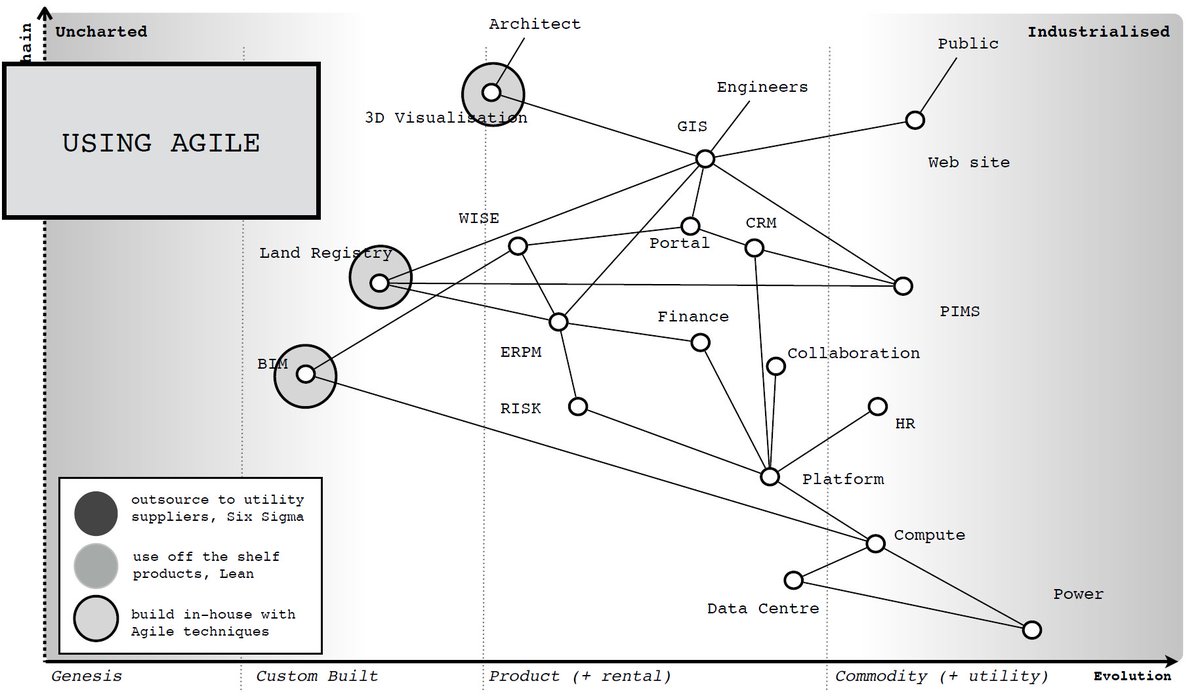X : You don't agree with agile?
Me : Eh? What? I agree with using appropriate methods based upon context.
X : Context of what?
Me : Context of the components of a project.
X : I'm not sure I understand.
Me : Ok. take your systems diagram ...
Me : Eh? What? I agree with using appropriate methods based upon context.
X : Context of what?
Me : Context of the components of a project.
X : I'm not sure I understand.
Me : Ok. take your systems diagram ...
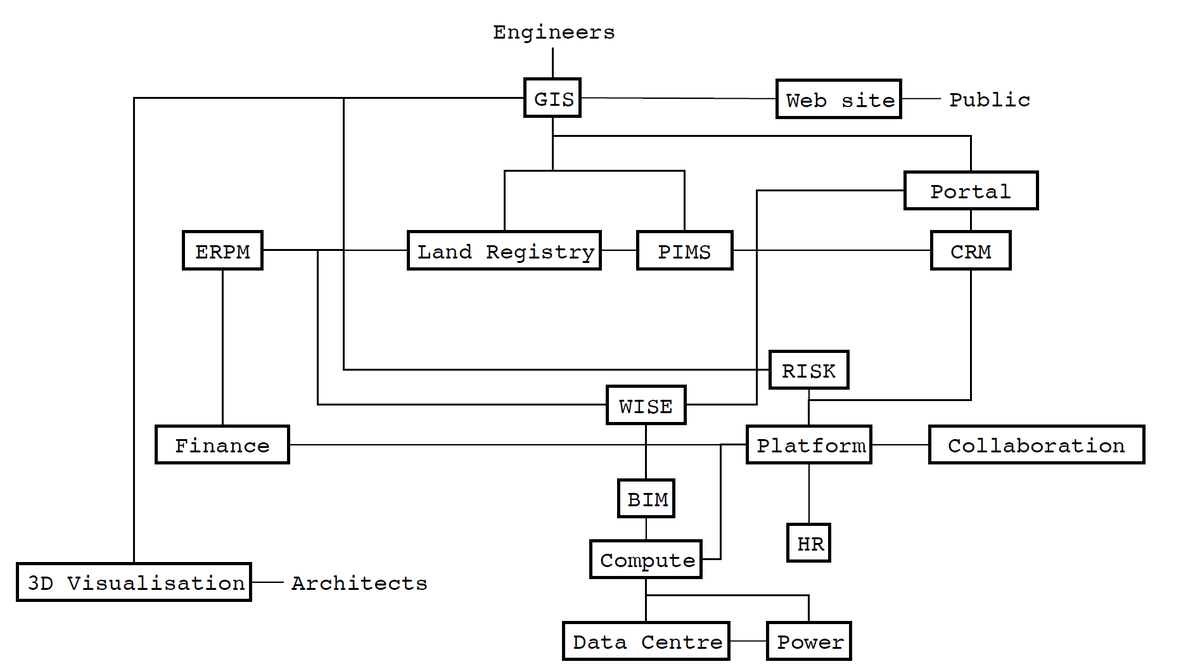
... turn it into a map by focusing on the user need, building the chain of components and asking how evolved is this component ... 
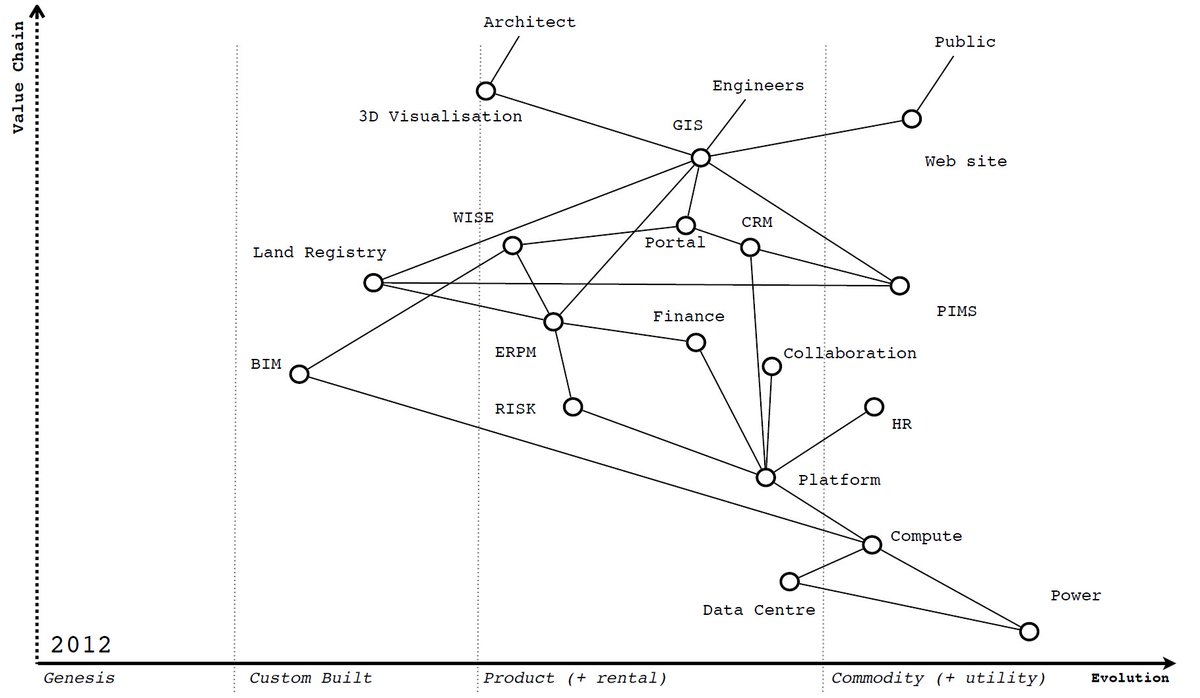
... now realise that as things evolve their characteristics change which is why different methods have strengths in different contexts ... 
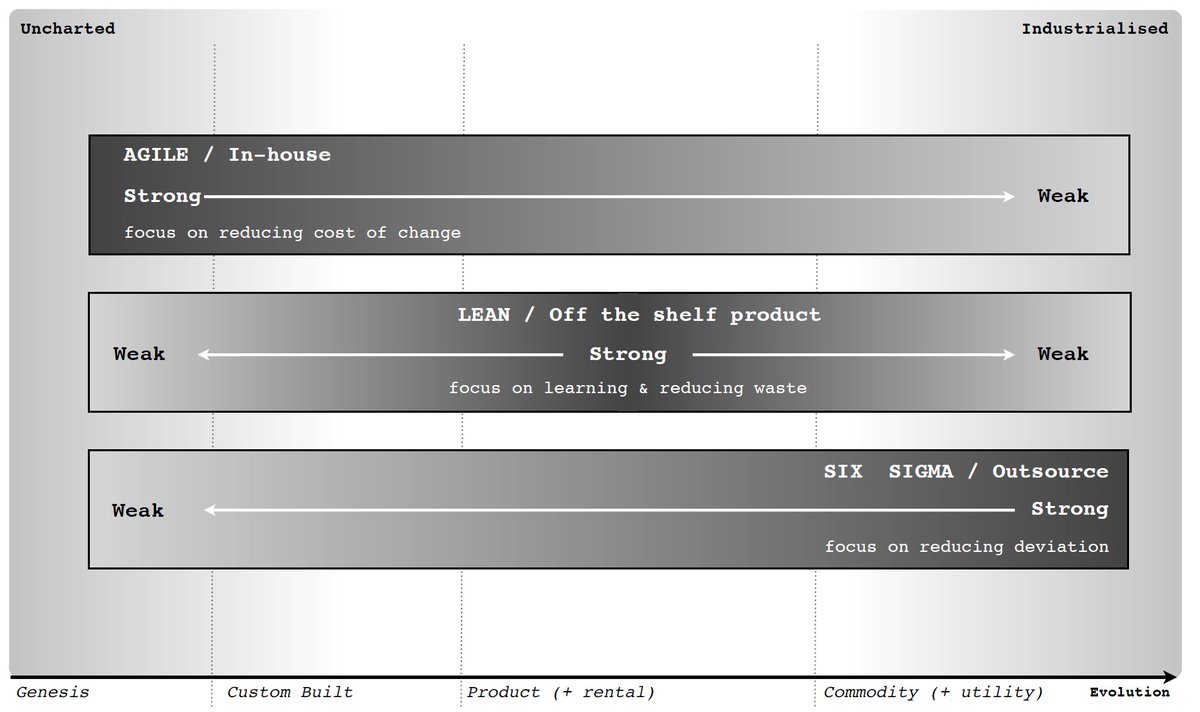
... so, apply that pattern to your map and discuss with others. Allow them to challenge, to modify, to add missing knowledge etc.
But most importantly, realise that ...
But most importantly, realise that ...
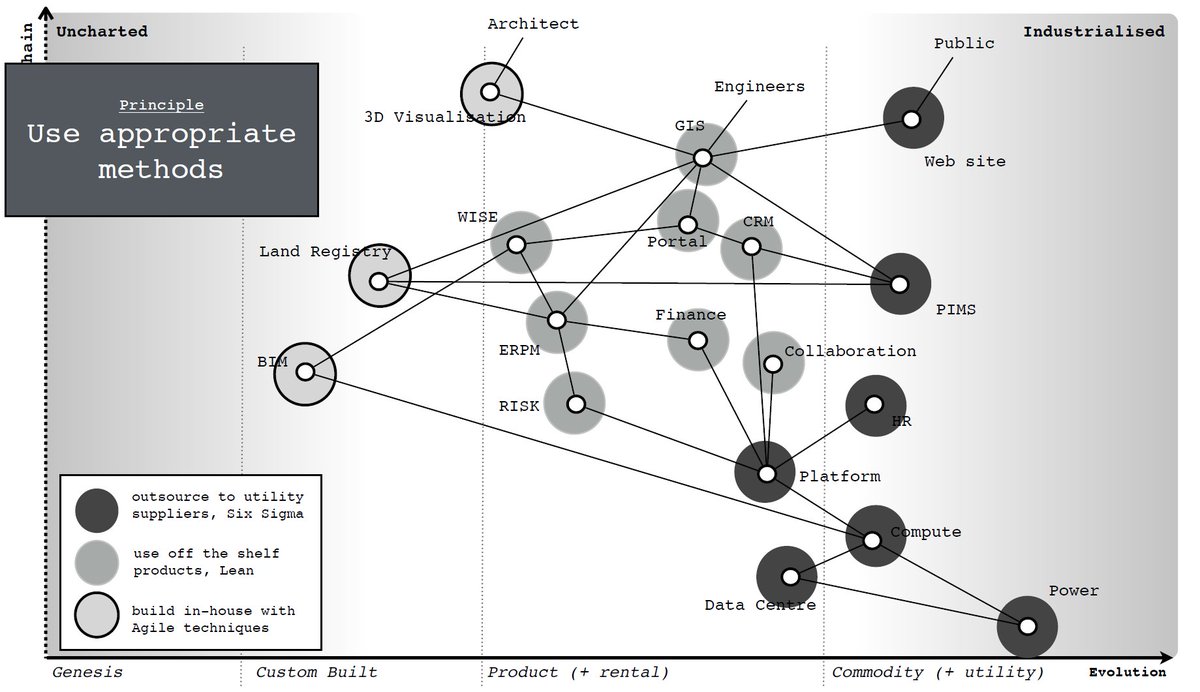
... being agile.
Being agile requires you to use appropriate methods i.e. don't start building your own compute utility when there's a perfectly useable one out there.
Being agile requires you to use appropriate methods i.e. don't start building your own compute utility when there's a perfectly useable one out there.
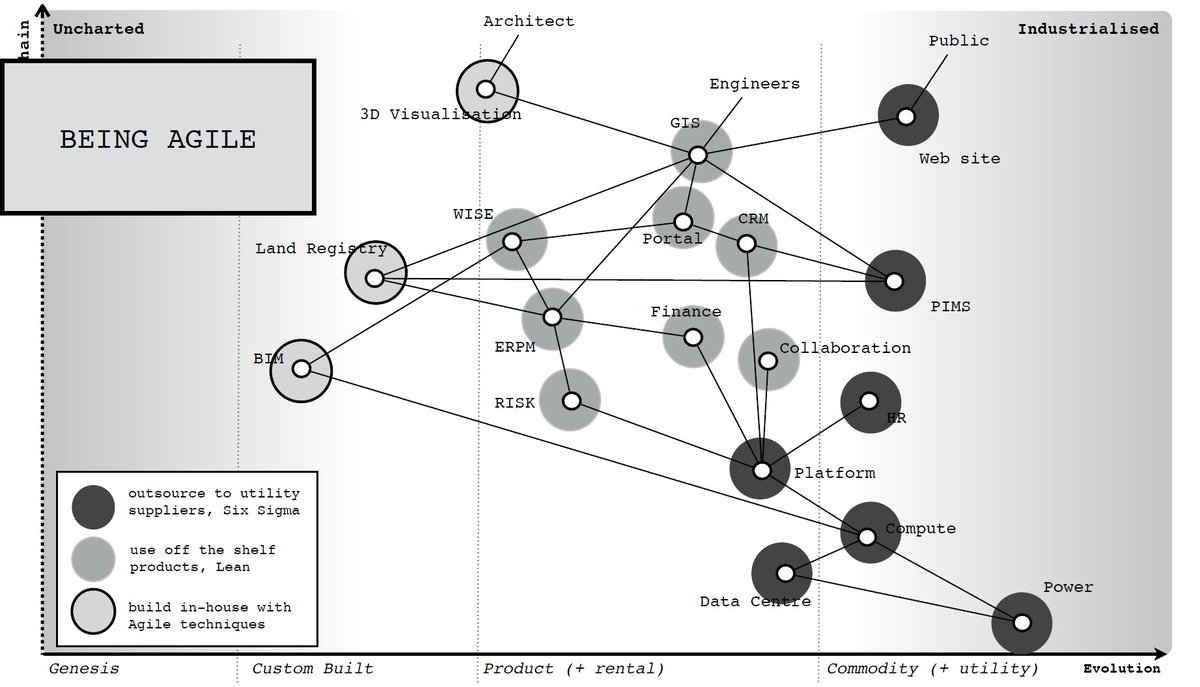
X : Not sure why this matters?
Me : Hmmm. Take that systems diagram above. People often manage this with a one size fits all (i.e. outsource it all) and to make it manageable break it into "connected" areas i.e. this stuff is backoffice, this stuff is user experience ...
Me : Hmmm. Take that systems diagram above. People often manage this with a one size fits all (i.e. outsource it all) and to make it manageable break it into "connected" areas i.e. this stuff is backoffice, this stuff is user experience ...
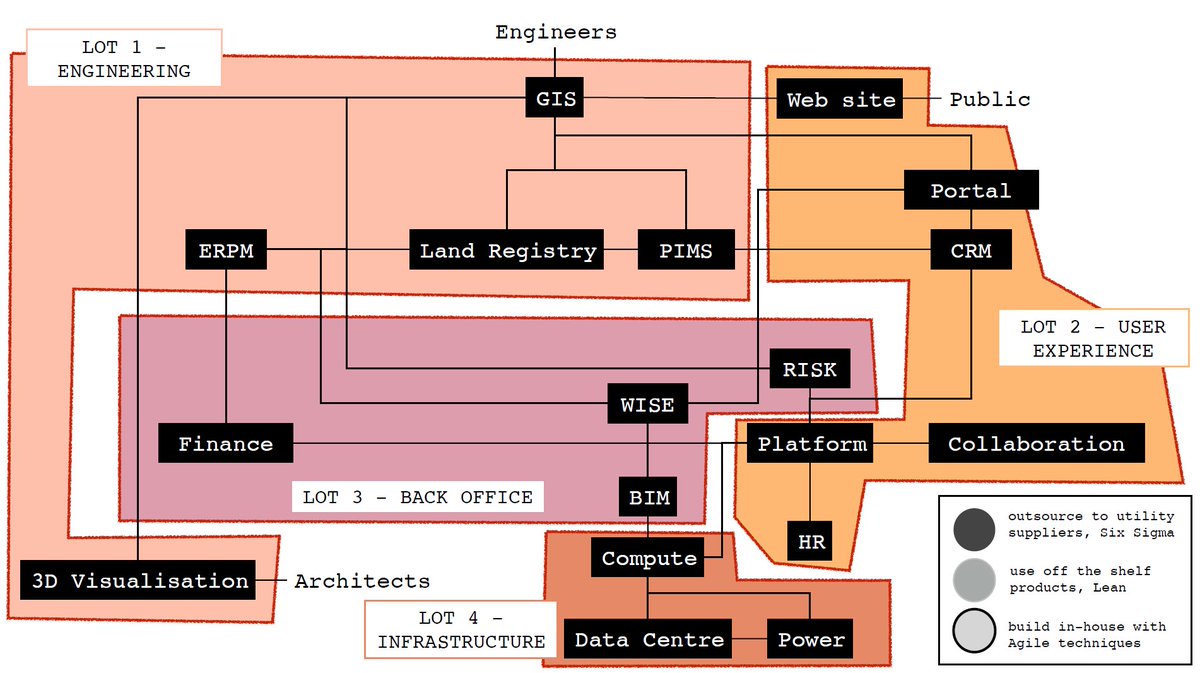
... let us apply one of those "connected" areas to the map. Let us choose engineering. Now, we're going to outsource this and so we're going to need a contract, so we know what we're getting ... 

... well, I can tell you where the contract is going to mess up before we've even signed it. The stuff on the left will always occur excessive change control costs if you attempt to define it in a contract ... 

... sitting down with a £600M+ contract, spending a day mapping and showing where the contract is going to massively overrun is one of my superpowers.
X : Why £600M?
Me : Happens to be a contract I'm thinking of.
X : What happened?
Me : They did it anyway and ...
X : Why £600M?
Me : Happens to be a contract I'm thinking of.
X : What happened?
Me : They did it anyway and ...
... failed in all the right places. Massive cost overruns etc etc.
X : Why did they do it?
Me : The power of narrative. They believed in their story, they associated themselves (and their own power) with the story and they refused to accept challenge against their story.
X : Why did they do it?
Me : The power of narrative. They believed in their story, they associated themselves (and their own power) with the story and they refused to accept challenge against their story.
X : Is this common?
Me : 84% of digital transformation efforts fail, over 50% of outsourcing efforts fail (and that has only come down because we count cloud as outsourcing) etc. It's more common than not.
Me : 84% of digital transformation efforts fail, over 50% of outsourcing efforts fail (and that has only come down because we count cloud as outsourcing) etc. It's more common than not.
X : But those failures aren't just contracts and purchasing.
Me : Agreed but a significant number of the failures appear to have a common thread - an excellent story built on a lack of challenge and a lack of situational awareness
Me : Agreed but a significant number of the failures appear to have a common thread - an excellent story built on a lack of challenge and a lack of situational awareness
X : Mapping seems a lot of work.
Me : It is. It took me an entire day to map out a £600M contract and spot the flaws ... seriously, are you really going to play the analysis paralysis card?
Me : It is. It took me an entire day to map out a £600M contract and spot the flaws ... seriously, are you really going to play the analysis paralysis card?
• • •
Missing some Tweet in this thread? You can try to
force a refresh

